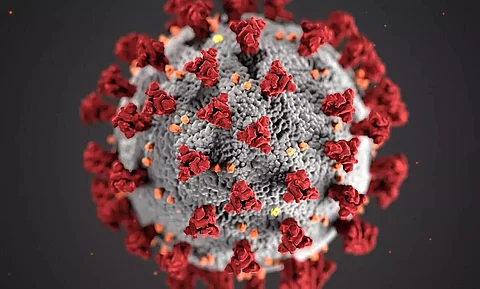
- Home
- Live Blog
- Breaking News
- Top Headlines
- Cities
- NE News
- Sentinel Media
- Sports
- Education
- Jobs

Dimapur: The
state Integrated Disease Surveillance Programme (IDSP), Health & Family
Welfare, in its weekly COVID roundup released on December 26, warned "The state
can expect a major surge of cases weeks to days after the festivities unless
everyone takes precautions.
Over the past week (December 19-25) Nagaland reported only 63 cases of COVID-19 which is the lowest weekly tally since June-July. However, in the New Year after the festivities, the state could be in for a substantial increase in COVID-19 cases.
Social and religious gatherings might turn into
super-spreaders unless safety measures are followed strictly, it added.
As of December 26, the total number of cases recorded from Flu Clinics stood at 663, returning a 14% rate of positivity.
Stating that isolation and testing for symptomatic
and contacts of positive cases are crucial to breaking the chain of
transmission of the virus, it said, "If you do not name a contact or get
tested, you are directly involved in spreading cases in the community."
During the past week, the state also reported four deaths. Compared to the national average of 1.45%, the mortality rate in the state was 0.65 percent.
61 percent of deaths from Covid-19 are under the age
of 60, and 64 percent of cases have co-morbidities with diabetes and
hypertension, as the most common associated co-morbidities.
The IDSP also warned of "undetected cases in the
community" as the case detection continues to increase among people who attend
flu clinics. These cases, without any history of travel or contact with the
positive case, either had or have symptoms or got tested for travel/surgery
purposes.
This is worrying as it identified many more
undetected cases in the community and one undetected case in a social gathering
is enough to cause a super spreader event," it added.
As of December 27, the total number of traced
positive cases stood at 4848, or 41 percent of the state-wide tally. In July,
the percentage of traced cases was 1 percent of the state total at the time.
Further 78% of cases detected between December 19-25 were traced cases from the
community.
The situation is more critical than earlier days as
per the IDSP, as earlier cases were reported mostly among returnees. Infected
persons who do not undergo virus-transmitting symptoms are the key factor in
community transmission.
"People with symptoms may self-isolate or seek medical care, but those without symptoms may continue to circulate in the community. There is the ability for those without symptoms to be super-spreaders," It said.
Also Read: Meghalaya's milk mission, welfare of dairy farmers improved
Also Watch: Assam Livestock and Poultry Corporation distributed free poultry to over 200 farmers